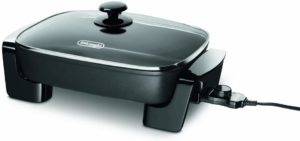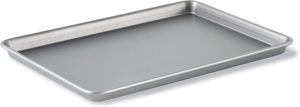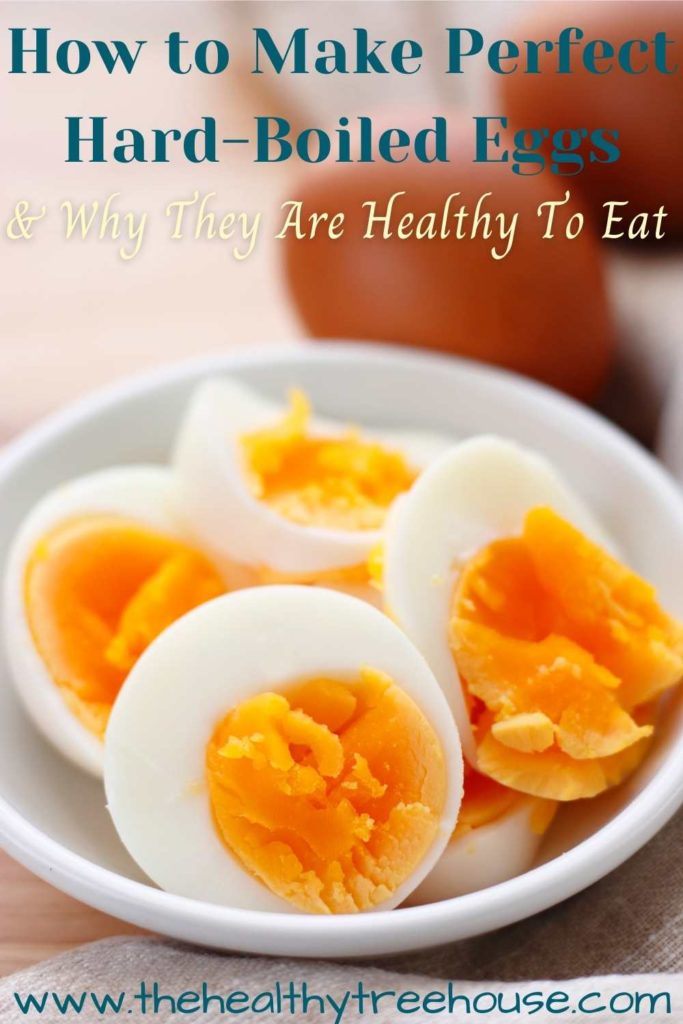
One of my favorite foods is the humble egg.
Eggs are packed full of healthy nutrients that fill you up with vitamins and proteins.
They can even help you to lose weight.
In fact, a study showed that eating a healthy egg breakfast every day for eight weeks will lower your BMI (body mass index).
Need to know how to make perfect hard-boiled eggs the correct way?
I got you, and I’ll also dip into why they’re healthy to eat.
Nutrients In Eggs
Let’s get straight to the facts: one large hard-boiled egg (about 50 grams) will provide you with the following (hard-boiled egg nutrition according to the USDA):
- Carbs: 0.6g
- Saturated fat: 1.6g
- Monounsaturated fat: 2.0g
- Total fat: 5.3g
- Calories: 77
- Cholesterol: 212mg
- Protein: 6.3g
- Vitamin A: 74.5mcg
- Vitamin D: 43.5IU
- Vitamin B6: 0.06mcg
- Vitamin B12: 0.555mcg
- Selenium: 15.4mcg
- Phosphorus: 86mg
- Sodium: 62mg
- Iron: 0.595mg
- Calcium: 25mg
Amino Acids
Apart from the above, eggs are also packed with a range of amino acids, which help the body to break down food and build lean muscles.
B Vitamins
Hard-boiled eggs are also important sources of essential vitamins, including all B vitamins.
The vitamin B range is important for our health since they help to turn carbohydrates, protein, and fat into energy for our body to use.
In particular, B12 is especially important for our blood cells.
It helps the formation of red blood cells and is crucial for the central nervous system.
It’s highly recommended that vegetarians increase their intake of B12 vitamins since they don’t get it from meat products.
Vitamin D
Another important vitamin found abundantly in eggs is vitamin D.
In fact, one egg will provide you with about 43.5IU—which is about 10 percent more than the recommended daily intake.
Vitamin D is crucial for our bodies to absorb calcium and improve the health of our bones and teeth.
It has also been shown to reduce the risk of certain chronic diseases, such as type 2 diabetes and cancer.
Proteins
Protein is one of the most crucial components of our health.
It helps your body to build muscles, strengthen bones, and even produce hormones and enzymes.
Eggs are one of the best sources of high-quality protein—a high-quality protein is considered a “complete protein,” meaning it consists of all necessary amino acids and is easy to digest.
Just one egg contains 6g of high-quality protein, which is found in the whites and the yolk.
It’s important to note that most of the eggs’ nutrients reside in the yolk.
The white is nearly all protein—which is important—but you must consume the yolk to get all the nutritional benefits.
Cholesterol
One egg contains 186mg of cholesterol.
This may sound like a lot; however, the cholesterol found in eggs isn’t bad for your health—as opposed to the cholesterol found in saturated and trans fats.
Studies have shown that cholesterol in eggs won’t raise your body’s cholesterol levels.
It’s even been found that a healthy person can eat up to seven eggs a week without raising their cholesterol levels.
Fat
The fat in an egg is one of the most important components as it helps your body to absorb the fat-soluble vitamins also present in the egg.
Fat-soluble vitamins include A, D, E and K.
By eating one hard-boiled egg, you’re getting 5g of healthy fat to help your body absorb other essential vitamins and nutrients.
Summary: Eggs provide tons of nutrients to our bodies in one compact food. For this reason, eggs should be incorporated into our diets regularly.
Hard-Boiled Eggs Promote Eye Health
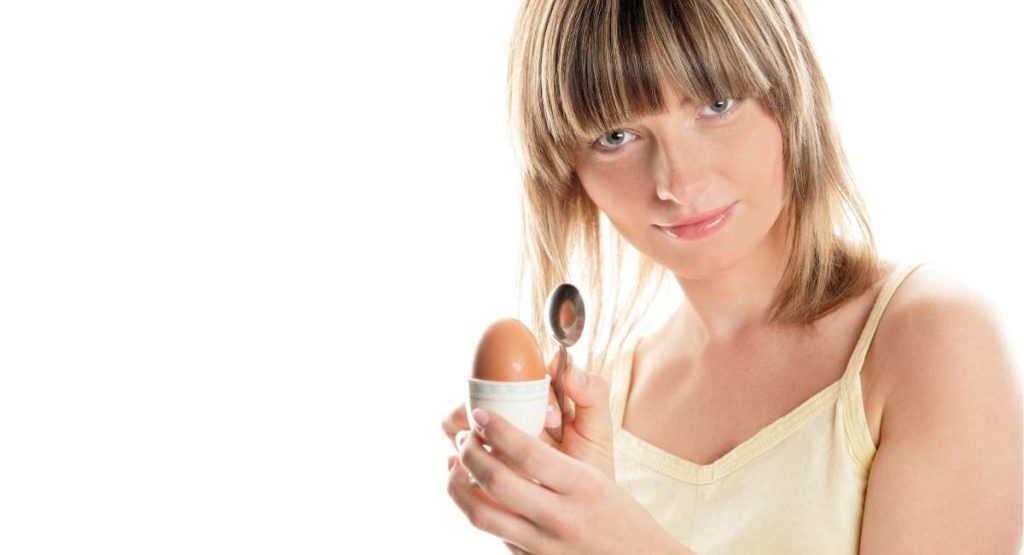
Within the egg yolk, there are two essential antioxidants: lutein and zeaxanthin.
These antioxidants play an important role in our eye health as they fight off oxygen-induced free radicals that accumulate within our eyes.
The two antioxidants—particularly zeaxanthin—have been shown to slow down the formation of cataracts while protecting against macular degeneration.
Additionally, they have been shown to protect our eyes against blue light—important if you’re often spending too much time in front of a computer screen.
Thanks to the fat also found within the yolk, our bodies will absorb both lutein and zeaxanthin much easier.
Summary: Eating egg whites and yolks have been found to assist with eye health when eaten regularly.
Hard-Boiled Eggs Can Improve Your Brain’s Health
Choline plays an important role in maintaining a healthy nervous system, as well as learning and memory.
Choline produces acetylcholine, which is a neurotransmitter involved in learning and memory.
Choline is also crucial during pregnancy and early childhood as it promotes fetal brain and memory development.
Furthermore, it helps to promote cognitive function in adults.
Despite playing such an important role in our health, adults and children often don’t consume enough.
The human body does produce some amount of choline on its own; however, it’s only in small quantities.
It’s, therefore, crucial that you get additional choline from your diet to avoid deficiency.
And what better way than to do that than eat a hard-boiled egg?
In fact, the yolk itself contains 147mg of choline.
This is about 27 percent of the recommended daily intake, making eggs one of the most concentrated sources of choline.
Summary: Choline, found in eggs, is an integral nutrient for our brain health. Pregnant mothers should consume eggs throughout pregnancy to pass on choline to their baby for fetal brain development.
Brown vs. White Eggs: Is There a Difference?
A common egg debate is whether or not the color of the egg plays a role in its health benefits.
Brown eggs are generally more expensive compared to white eggs, which leads people to believe it’s of a higher quality and, therefore, healthier.
However, white and brown eggs hold the same nutritional values.
The breed of the hen is what determines the color of her eggs.
Similarly, some chicken breeds will lay larger and lighter eggs as they age.
Other factors, such as stress and diet, can also have slight effects on the color of the shell.
What causes the price of brown eggs to be higher is that they used to be more difficult to produce.
Brown egg-laying hens are typically larger and take longer to produce eggs compared to white egg-laying hens.
However, modern production of white and brown eggs is at the same rate—nevertheless, the price still seems to be slightly higher.
A Chicken’s Environment Is Important
The chicken’s environment plays an important role in the nutritional content of its eggs.
Hens that roam free in the sunshine all day will produce eggs that contain three to four times more vitamin D compared to conventionally-raised hens.
Furthermore, chickens that are fed a diet high in omega-3 fatty acids will produce eggs with higher levels of omega 3.
Do Brown and White Eggs Taste the Same?
Although some say that brown eggs have a better taste, whereas others prefer white eggs, the color of the shell won’t change the taste.
Other factors will impact the taste of the egg, though, such as the feed, the freshness of the egg, and how you cook it.
Hens’ Diets and Egg Taste
For example, hens that are fed a diet high in fat will produce more tasty and flavorful eggs compared to those on a low-fat diet.
Too much fish oil in the hens’ diet can cause the eggs to have a fishy taste.
Similarly, certain fats, and even too high amounts of vitamin A and D, can give the eggs an off-tasting flavor.
Home-raised chicken eggs also won’t have the same flavor as conventionally-raised hen’s eggs due to different diets.
How Storage Can Impact Flavor
If they’re kept in a warm environment, they can develop an off-taste.
How long the eggs are stored will also impact the taste significantly.
The best way to preserve the freshness of your eggs is to keep them in the refrigerator.
This might also be why many believe that home-raised chicken eggs taste better compared to those conventionally raised.
When produced right in your backyard, the eggs often go straight from the coop to your plate—it can’t get fresher than that.
On the other hand, conventionally raised chicken eggs go through packaging and shipping before we even buy them.
Cooking Methods Will Impact Flavor
A study showed that eggs from chickens fed with fish oil would have an off-flavor or even a sulfur flavor when boiled or poached.
However, when scrambled, omega-3-enriched eggs and conventional eggs tasted the same.
Therefore, many factors will impact the flavor of an egg, just not the color of the shell.
Summary: The color of the egg does not impact its flavor. However, the hen’s environment, the feed, and your home storage method will all impact the flavor of the eggs.

How You Can Get the Best Eggs
As you can see, the color of the shell doesn’t play a role in the quality of the egg, so what does?
Store-bought eggs are usually marked as all-natural, cage-free, free-range, etc., but what do these labels actually mean?
Organic Eggs
When buying eggs, we always go for organic.
Certified organic eggs in the United States, as well as in the European Union, are produced by chickens fed an all-organic and GMO-free diet.
Organic chickens must also have access to the outdoors throughout the year, and they can’t be given hormones.
Free-Range Eggs
Free-range eggs are also a good option.
The free-range label indicates that eggs are from hens that are housed with continuous access to the outdoors.
Since the hens have more access to the outdoors, they live a better life and produce eggs with a higher content of vitamin D.
All-Natural Eggs
Eggs labeled “all-natural” are very misleading.
Natural isn’t defined within the US; therefore, all-natural could mean anything based on the producer’s translation of the meaning.
Summary: Organic or free-range eggs are the tastiest, healthiest eggs on the market to purchase.
Hard-Boiled vs. Other Cooking Methods
Eggs are a popular food to eat; however, not many people eat them hard-boiled.
- Boiling: The method of boiling eggs requires nothing but water and eggs—although some prefer to add vinegar, salt, or other ingredients to the water.
- Frying: On the other hand, frying your eggs requires additional oil or butter, which adds calories and fat. However, the nutritional value of the egg remains the same.
- Omelet: Frying up some vegetables in olive oil to create an omelet is also a healthy alternative to fried eggs.
- Poached: If you’d like to change up your eggs, you can try the tricky poached egg.
Deviled eggs are another popular recipe that uses hard-boiled eggs.
The bottom line is that you have to pay attention to what you’re adding to your eggs—instead of butter or refined vegetable oil, add a small amount of extra virgin olive oil.
Extra virgin olive oil is both anti-inflammatory and a strong antioxidant that’s good for our cardiovascular health.
Summary: Hard-boiled eggs are the healthiest to prepare because there is no extra fat or oil from cooking. Poaching would be the second healthiest method.
The Hard-Boiled Egg Diet: Is it Legit?

The “hard-boiled egg diet” or “boiled egg diet” is a fad diet consisting mostly of eggs.
On it, you can also incorporate low-carb fruits—such as strawberries and watermelon—and lean vegetables, such as kale and spinach.
In theory, the boiled egg diet is great.
You get plenty of vitamins, proteins, and fats from the eggs you’re eating; however, it’s recommended that you stick to a more balanced diet.
Eating one type of food isn’t sustainable, and it can leave you feeling restricted.
Summary: While the hard-boiled egg diet is healthy, it is not sustainable.
FAQs
Can You Overcook a Hard-Boiled Egg?
As with any other food, you can easily overcook hard-boiled eggs.
When this happens, you’ll notice a greenish, grayish tint around the yolk—the longer the egg cooks, the more the color shows.
The color is caused by a reaction between sulfur from the whites and iron in the yolk.
Despite being unpleasant to look at, it’s safe to eat an overcooked egg.
To avoid overcooking your eggs, set a timer according to the method you’re using.
Once the eggs are done, cool them immediately in cold or ice water to stop them from cooking.
How Can You Tell If a Hard-Boiled Egg Is Bad?
The easiest way to tell if a hard-boiled egg has gone bad is by using your nose.
If it smells off-putting, it’s likely bad.
How long are hard-boiled eggs good for?
According to the FDA, you should eat hard-boiled eggs within a week of cooking—any longer, and they should be discarded.
The best way to store hard-boiled eggs is in their shells, and write the date of cooking directly on the shell.
Use the eggs for meal prep throughout the week.
Is Eating Boiled Eggs Good for Weight Loss?
Eating boiled eggs isn’t good for weight loss on their own.
Eating boiled eggs as part of a healthy diet while remaining in a caloric deficit is good for weight loss.
Eggs provide you with a lot of the essential nutrients you need—plus, they’re filling.
Eggs have also been shown to increase metabolism, which will help you in weight loss.
How Do You Know When a Hard-Boiled Egg Is Done?
To know when a hard-boiled egg is done, set a timer.
If you’ve already boiled your eggs, but are unsure if they’re done, you’ll have to peel them.
You can also test your eggs by spinning them on a flat surface.
Hard-boiled eggs will spin easily since the inside is solid, whereas a raw egg will wobble slightly in place.
How Long Do You Need to Boil an Egg?
How you like your yolk cooked will depend on how long you should boil your eggs.
This infographic will help you determine how long to boil to have a perfect consistency.
Set your timer to reflect that amount of boiling time.
Once your egg has cooked for a sufficient amount of time, remove it to a cold water bath to help loosen the shell.

Tools to Help You Cook Perfect Eggs
Timing your eggs just right is essential.
We prefer to use a digital timer, such as the Wrenwane Kitchen Timer.
If you’re having trouble getting your eggs just right, an egg cooker, such as the Dash Rapid 6, could come in handy.
To pressure cook your eggs, check out our list of the best pressure cookers here.
You first need great cookware to cook any variety of eggs.
Take a peek at this article about the best cookware set of 2024.
Our full comprehensive list of all kitchen essentials is here, and it will help you determine what exactly you need in your kitchen.
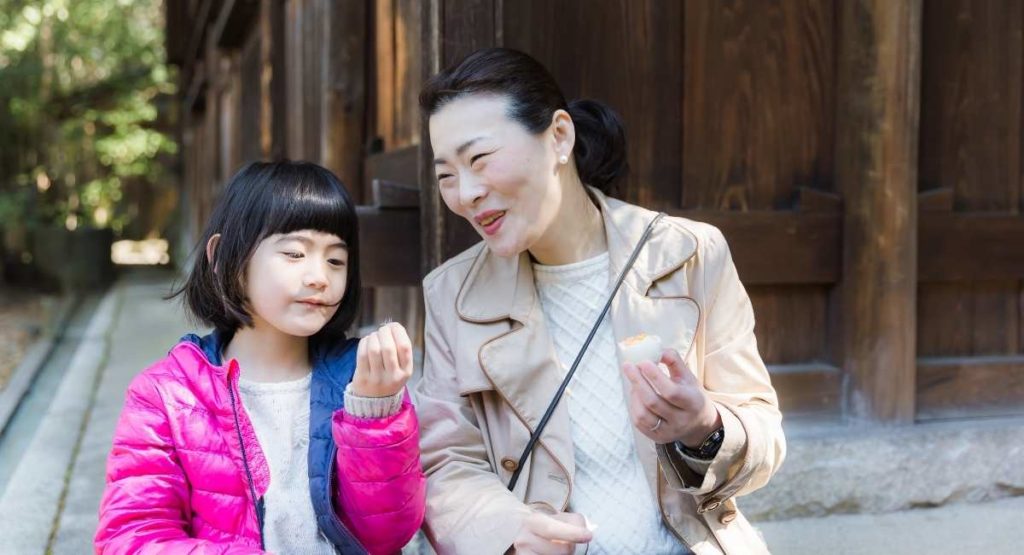
Egg-Cellent Eggs, Every Time
Incorporating eggs into your diet is one of the healthiest choices you can make.
Eggs are packed with nutrients through the yolk and white.
Although there are various methods for cooking perfect hard-boiled eggs, it’s important to do your own tests to see what works best.
Try out different cooking times to discover how you like your hard-boiled eggs the most.

